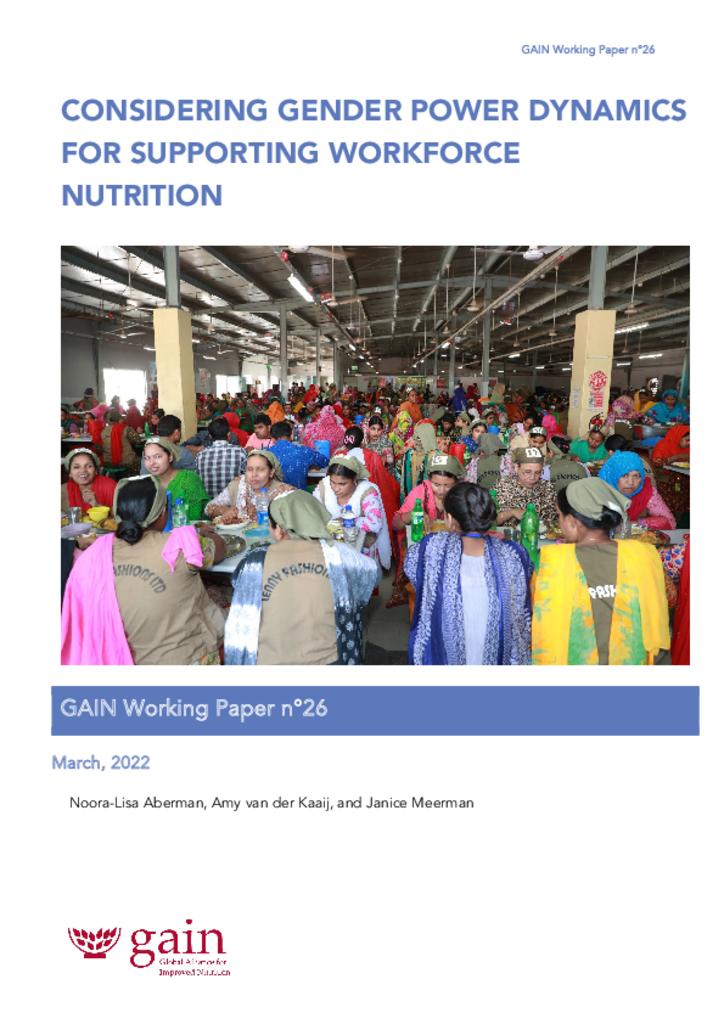Promotion of nutrition in the workplace is a high-potential intervention for multiple reasons. Over half the global population spends one third of their adult life at work, and a third of the global population also suffers from some form of malnutrition. Additionally, workplaces are conducive to nutrition interventions as they provide a controlled, modifiable environment that facilitates sustained interaction with a ‘captive audience’. However, as with all health-oriented interventions, successful promotion of nutrition in the workplace depends on identifying and addressing multiple sociocultural considerations. One of the most important of these is gender, which affects what, how, where, and if a person eats as well as other nutrition-related behaviours, such as breastfeeding, and an individual’s attitude towards health more generally.
This paper thus reviews prior research on gender issues in the workplace, with the objective of clarifying the implications of these norms for workplace nutrition programming in low- and middle-income countries. Findings indicate that discriminatory gender norms: 1) may limit women more than men in terms of their capacity to access healthy food at work and 2) may reduce the efficacy of workplace nutrition programmes, such as nutrition-focused health checks and breastfeeding support. From a programme perspective, these findings underscore the need to tailor workplace nutrition initiatives based on factors such as the male-to-female ratio of a given workplace’s management structure, history regarding the treatment of female employees, and the presence of workforce welfare committees (or lack thereof).
